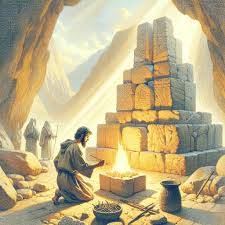The Bible contains many intellectual and philosophical themes, concepts, and ideas. Here are some examples:
Wisdom Literature
1. Proverbs: A book of wisdom sayings and teachings that explore the nature of wisdom, morality, and human experience.
2. Ecclesiastes: A book that explores the meaning of life, the nature of reality, and the human condition.
3. Job: A book that grapples with the problem of suffering, justice, and the nature of God.
Philosophical Themes
1. The Nature of God: The Bible explores the nature of God, including God's existence, attributes, and relationship to humanity.
2. Free Will and Determinism: The Bible discusses the tension between human free will and divine sovereignty.
3. Morality and Ethics: The Bible provides teachings on morality, ethics, and justice, including the Golden Rule and the Ten Commandments.
Intellectual Concepts
1. The Trinity: The concept of one God in three persons (Father, Son, and Holy Spirit).
2. The Incarnation: The concept of God becoming human in Jesus Christ.
3. The Atonement: The concept of Jesus' death and resurrection as a sacrifice for humanity's sins.
The Bible contains many intellectual and philosophical themes, concepts, and ideas. Here are some examples:
Wisdom Literature
1. Proverbs: A book of wisdom sayings and teachings that explore the nature of wisdom, morality, and human experience.
2. Ecclesiastes: A book that explores the meaning of life, the nature of reality, and the human condition.
3. Job: A book that grapples with the problem of suffering, justice, and the nature of God.
Philosophical Themes
1. The Nature of God: The Bible explores the nature of God, including God's existence, attributes, and relationship to humanity.
2. Free Will and Determinism: The Bible discusses the tension between human free will and divine sovereignty.
3. Morality and Ethics: The Bible provides teachings on morality, ethics, and justice, including the Golden Rule and the Ten Commandments.
Intellectual Concepts
1. The Trinity: The concept of one God in three persons (Father, Son, and Holy Spirit).
2. The Incarnation: The concept of God becoming human in Jesus Christ.
3. The Atonement: The concept of Jesus' death and resurrection as a sacrifice for humanity's sins.
Biblical Thinkers
1. Solomon: A wise and intelligent king who wrote several books of the Bible, including Proverbs and Ecclesiastes.
2. Paul: A Jewish Pharisee who became a Christian apostle and wrote several letters that are now part of the New Testament.
3. Augustine of Hippo: A Christian theologian and philosopher who wrote extensively on the nature of God, sin, and redemption.
These are just a few examples of the intellectual and philosophical themes, concepts, and ideas found in the Bible.
Would you like to explore any of these topics further?
Biblical Thinkers
1. Solomon: A wise and intelligent king who wrote several books of the Bible, including Proverbs and Ecclesiastes.
2. Paul: A Jewish Pharisee who became a Christian apostle and wrote several letters that are now part of the New Testament.
3. Augustine of Hippo: A Christian theologian and philosopher who wrote extensively on the nature of God, sin, and redemption.
These are just a few examples of the intellectual and philosophical themes, concepts, and ideas found in the Bible.
Would you like to explore any of these topics further?



No comments yet
Be the first to share your thoughts!